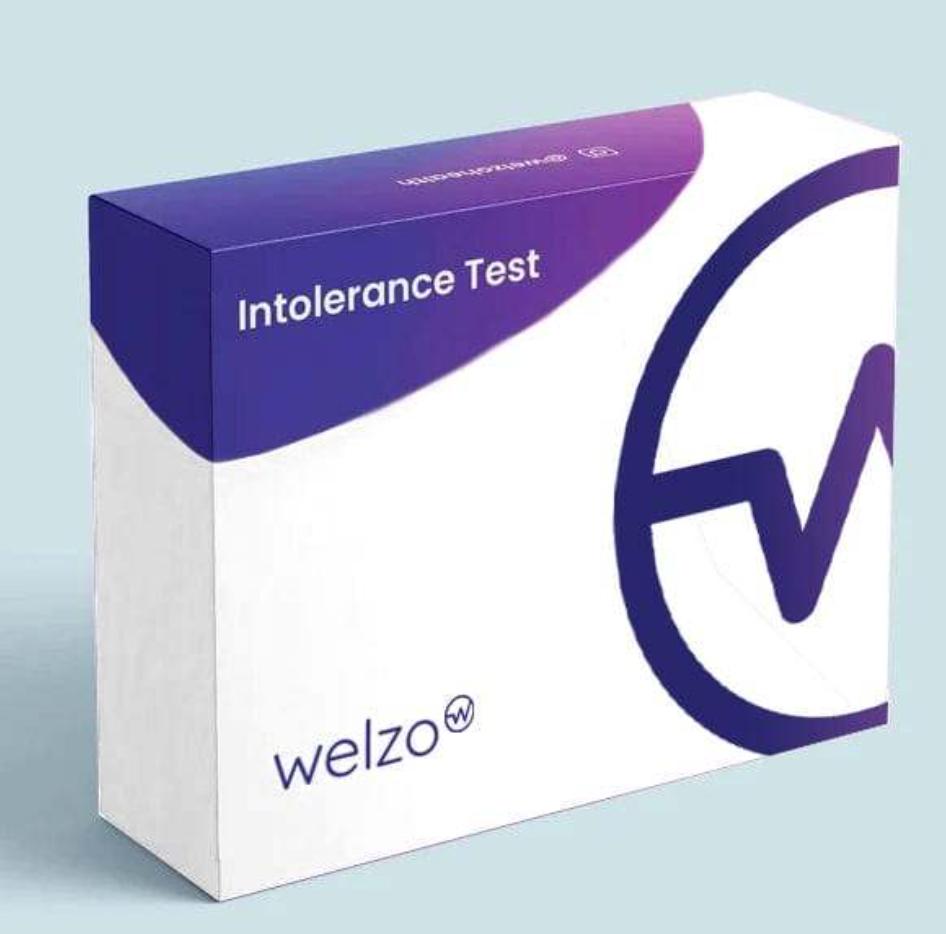Caffeine Intolerance: Symptoms, Causes, and Diagnosis


Related products
Caffeine Intolerance: A Comprehensive Guide
Caffeine intolerance is a condition in which an individual experiences adverse reactions after consuming even small amounts of caffeine. These reactions may include rapid heart rate, anxiety, digestive issues, or insomnia. Dr. John Higgins, an associate professor of medicine at the University of Texas, explains that caffeine intolerance is different from caffeine sensitivity, as the latter refers to individuals who experience effects from typical caffeine doses.
Prevalence and significance of understanding the condition
Although the exact prevalence of caffeine intolerance is unknown, it is essential to understand this condition as caffeine is widely consumed worldwide. Greater awareness of caffeine intolerance can help individuals recognize and manage their symptoms, promoting a healthier lifestyle.
Purpose of the article: inform, educate, and provide guidance
This article aims to inform, educate, and guide individuals with caffeine intolerance or those suspecting they may be intolerant. The information provided will cover the causes, risk factors, symptoms, diagnosis, management, and treatment of caffeine intolerance.
What is Caffeine?
Definition of caffeine
Caffeine is a naturally occurring stimulant belonging to the xanthine class of chemicals. It acts on the central nervous system, temporarily warding off drowsiness and restoring alertness. Caffeine is the most widely consumed psychoactive substance globally, with millions of people relying on it to stay awake, focused, and energized. To learn more about Allergies, read our comprehensive guide that covers: Allergies:, Types, Causes, Symptoms, Diagnosis, and Treatment options. If you are looking for treatments for hay fever or general allergens, then visit our extensive page with allergy and hayfever medication and tablets.
Natural sources of caffeine
Caffeine is found in varying quantities in the seeds, leaves, and fruits of some plants, where it acts as a natural pesticide. The most well-known natural sources of caffeine include coffee beans, tea leaves, and cocoa beans. Other sources include yerba maté, guarana berries, and the kola nut.
Common caffeinated products
Caffeine is present in many everyday products, such as coffee, tea, soft drinks, energy drinks, and chocolate. Additionally, caffeine is an ingredient in certain medications, dietary supplements, and over-the-counter pain relievers.
Causes and Risk Factors for Caffeine Intolerance
Genetics
Genetics plays a significant role in determining an individual's response to caffeine. According to Dr. Ahmed El-Sohemy, a researcher at the University of Toronto, genetic variations in the genes responsible for metabolizing caffeine can affect how quickly an individual breaks down and eliminates caffeine from their system. Those with a slower metabolism may be more susceptible to caffeine intolerance due to increased sensitivity to its effects. Those with a slower metabolism may be more susceptible to caffeine intolerance due to increased sensitivity to its effects. In such cases, a food intolerance test can help pinpoint specific dietary triggers, including how the body reacts to caffeine and other compounds.
Metabolism
Caffeine is primarily metabolized in the liver by the cytochrome P450 enzyme system. Factors such as age, liver function, and the use of certain medications can influence an individual's ability to metabolize caffeine. Slower caffeine metabolism may increase the risk of developing caffeine intolerance.
Sensitivity versus intolerance
It is essential to differentiate between caffeine sensitivity and caffeine intolerance. While sensitive individuals may experience more pronounced effects from typical caffeine doses, those with intolerance have adverse reactions to even small amounts of caffeine. Identifying the distinction between the two can help individuals better understand and manage their reactions to caffeine.
Other medical conditions
Other medical conditions, such as anxiety disorders, heart problems, or allergic reactions, may mimic caffeine intolerance. Comprehensive allergy testing can help differentiate between these causes
Symptoms and Clinical Presentation of Caffeine Intolerance
Common symptoms
Individuals with caffeine intolerance may experience a range of symptoms, including rapid or irregular heartbeat, anxiety, jitters, insomnia, digestive issues, headaches, and increased blood pressure. Dr. Daniel Vigil, a sports medicine expert at UCLA, points out that these symptoms can vary significantly between individuals and may not always be recognized as resulting from caffeine intolerance.
Severity and variability of symptoms
The severity and presentation of caffeine intolerance symptoms can vary widely among individuals, depending on factors such as genetics, metabolism, and the amount of caffeine consumed. Some people may experience mild discomfort, while others may suffer from debilitating symptoms that significantly impact their daily lives.
Potential complications
If left unmanaged, caffeine intolerance can lead to potential complications, such as chronic sleep disturbances, increased anxiety, or exacerbated heart conditions. In some cases, excessive caffeine consumption may result in a condition known as caffeine-induced anxiety disorder, as described in the Diagnostic and Statistical Manual of Mental Disorders (DSM-5).
Diagnosis of Caffeine Intolerance
Medical history and physical examination
Diagnosing caffeine intolerance often begins with a thorough medical history and physical examination. Healthcare professionals will consider an individual's symptoms, caffeine consumption habits, and any other relevant factors, such as underlying medical conditions or medication use.
Caffeine challenge test
In some cases, a caffeine challenge test may be used to diagnose caffeine intolerance. Under medical supervision, the individual is given a small amount of caffeine, and their response is monitored. If symptoms consistent with caffeine intolerance occur, a diagnosis may be confirmed. However, this allergy test should only be conducted under the guidance of a healthcare professional due to the potential risks involved.
Differential diagnosis
It is essential to rule out other conditions that may cause similar symptoms to caffeine intolerance. Differential diagnosis may include anxiety disorders, hyperthyroidism, or other medical conditions that could present with overlapping symptoms. To rule out overlapping conditions such as allergies or intolerances to other substances, a combined allergy and intolerance blood test may offer a more complete understanding of what’s causing the symptoms.
Management and Treatment Strategies for Caffeine Intolerance
Caffeine reduction or elimination
The primary management strategy for caffeine intolerance is reducing or eliminating caffeine consumption. This may involve gradually cutting back on caffeinated products or replacing them with caffeine-free alternatives. Dr. Michael J. Breus, a clinical psychologist and sleep specialist, recommends a gradual approach to caffeine reduction to minimize withdrawal symptoms.
Alternative sources of energy and alertness
For individuals who rely on caffeine for energy and alertness, alternative strategies can be employed. These may include engaging in regular physical activity, maintaining a consistent sleep schedule, consuming a balanced diet, and practicing stress management techniques.
Managing symptoms
For those experiencing symptoms of caffeine intolerance, it is essential to find ways to manage and alleviate discomfort. This may involve over-the-counter medications to address specific symptoms, such as headaches, or seeking guidance from a healthcare professional for more personalized recommendations. If symptoms persist or vary over time, a premium intolerance test offers in-depth insights into a wide range of potential triggers, helping tailor long-term lifestyle adjustments.
Living with Caffeine Intolerance
Lifestyle adjustments
Living with caffeine intolerance requires several lifestyle adjustments, such as adopting a caffeine-free or low-caffeine diet, finding alternative sources of energy, and adapting to new daily routines. These changes may initially be challenging but can ultimately lead to improved health and well-being for individuals with caffeine intolerance.
Navigating social situations
Caffeine is often a central component of social gatherings, making it essential for individuals with caffeine intolerance to develop strategies for navigating these situations. This may involve bringing caffeine-free alternatives to events, openly discussing their intolerance with friends and family, or finding creative ways to enjoy social gatherings without consuming caffeine.
Support networks and resources
Having a strong support network can be vital for individuals living with caffeine intolerance. This may include friends and family, healthcare professionals, or online communities and support groups. Accessing reliable resources for information and guidance, such as books, articles, and websites dedicated to caffeine intolerance, can also provide valuable assistance.
Prevention and Awareness
Recognizing the signs of caffeine intolerance
Early recognition of caffeine intolerance signs can help individuals take appropriate steps to manage their condition and minimize potential complications. Awareness campaigns and educational initiatives can play a crucial role in helping people identify caffeine intolerance and seek appropriate assistance.
Encouraging moderate caffeine consumption
Promoting moderate caffeine consumption is essential for both individuals with caffeine intolerance and the general population. Health organizations like the American Heart Association recommend limiting daily caffeine intake to 400 milligrams for most adults. Encouraging responsible caffeine consumption can help minimize the risk of developing caffeine intolerance and related health issues.
Promoting education and awareness
Raising awareness and providing education about caffeine intolerance can help individuals better understand the condition and the potential consequences of excessive caffeine consumption. Educational efforts can target healthcare professionals, schools, and the general public to ensure a comprehensive understanding of caffeine intolerance.
Future Research and Development
Advances in understanding caffeine intolerance
Continued research into the mechanisms underlying caffeine intolerance can lead to a better understanding of the condition and help develop new diagnostic and treatment approaches. As our knowledge of caffeine intolerance expands, healthcare professionals and individuals alike can make more informed decisions about managing the condition.
Potential therapies and interventions
Future research may identify novel therapies and interventions for caffeine intolerance. These could include new medications or supplements that mitigate the effects of caffeine, allowing those with intolerance to consume moderate amounts of caffeine without experiencing adverse symptoms.
Ongoing studies and areas of research
Ongoing studies in the field of caffeine intolerance research may explore the genetic and metabolic factors influencing individual responses to caffeine, the impact of caffeine intolerance on overall health, and potential strategies for modifying caffeine metabolism. These studies could contribute to a more nuanced understanding of caffeine intolerance and its management.
Conclusion
Importance of recognizing and managing caffeine intolerance
Recognizing and managing caffeine intolerance is essential for maintaining optimal health and well-being. By understanding the condition and its implications, individuals can take appropriate steps to reduce or eliminate caffeine from their diet and find alternative sources of energy and alertness.
Support and encouragement for those affected by the condition
Individuals affected by caffeine intolerance should feel supported and encouraged in their efforts to manage their condition. By sharing their experiences and connecting with others facing similar challenges, those with caffeine intolerance can find strength in community and learn valuable coping strategies.
Advocating for increased awareness and understanding of caffeine intolerance
Advocating for increased awareness and understanding of caffeine intolerance is crucial for helping those affected by the condition access the resources and support they need. By promoting education, research, and public awareness, we can work together to improve the lives of individuals with caffeine intolerance and contribute to the overall well-being of society. Raising awareness about caffeine intolerance includes making testing accessible and known. Welzo’s full range of intolerance tests supports individuals looking to take control of their health through informed choices.



































 Rated Excellent by 26,523+ Reviews
Rated Excellent by 26,523+ Reviews